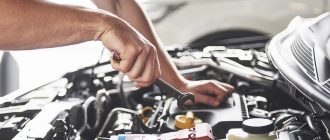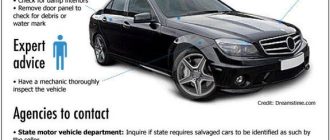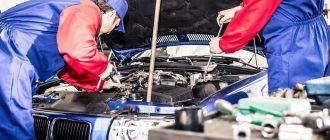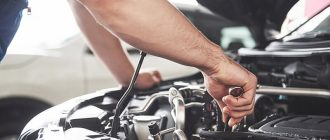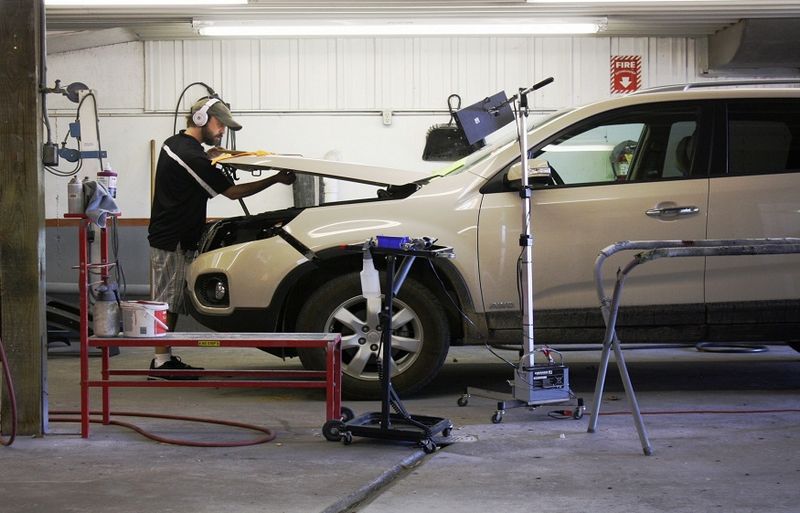
How Long Do I Have To Repair My Car After An Accident
After being involved in an accident, one of the most pressing questions that comes to mind is how long it will take to repair my car. While every situation is unique, there are some general guidelines that can help you understand the timeline for getting your vehicle back on the road.
The length of time it takes to repair a car after an accident will depend on a variety of factors. The extent of the damage, availability of parts, and the workload of the repair shop are all important considerations. In some cases, minor cosmetic damage can be repaired in a matter of days, while more significant structural damage may require weeks or even months to fully restore.
If you have insurance, it’s important to notify your provider as soon as possible after an accident. They will guide you through the process and help you understand any deadlines or requirements associated with repairing your car. Insurance companies typically have preferred repair shops that they work with, which can help expedite the repair process.
In conclusion, there is no definitive answer to how long you have to repair your car after an accident. It depends on the specific circumstances and the cooperation between your insurance provider and the repair shop. However, it’s important to address the repairs as soon as possible to ensure your safety and to prevent further damage to your vehicle.
Understanding Car Repair Timeframes
After an accident, you may be wondering how long you have to repair your car. The time it takes to repair your car can vary depending on various factors such as the extent of the damage, availability of parts, and the overall workload of the repair shop.
Typically, you’ll want to have your car repaired as soon as possible to ensure your safety on the road and prevent further damage. However, there is no set time frame for when you have to complete the repairs.
If your car is in drivable condition and doesn’t pose any immediate safety risks, you may have more flexibility in scheduling the repairs. In some cases, insurance companies may also have specific guidelines or time frames in place that dictate when repairs need to be completed.
Additionally, it’s important to consider the availability of parts for your specific make and model of car. If there are delays in obtaining the necessary parts, it could prolong the repair process.
When choosing a repair shop, it’s important to consider their workload and how busy they are. If a shop is particularly busy, it may take longer to get your car in for repairs.
It’s also worth noting that some repairs may require more time than others. For example, minor cosmetic repairs may be completed relatively quickly, while more extensive repairs such as frame damage or engine repairs could take longer.
In conclusion, while there is no specific time frame for when you have to complete repairs after an accident, it’s generally recommended to have your car repaired as soon as possible. Factors such as the extent of the damage, availability of parts, and the workload of the repair shop can all influence how long the repair process will take.
Factors Impacting Repair Time
When you have to repair your car after an accident, several factors can affect how long the process will take. These factors include:
- The extent of the damage: The more severe the damage to your car, the longer it will likely take to repair. If there is significant body or structural damage, additional time may be required to source and replace parts.
- Availability of parts: Depending on the make and model of your car, some parts may not be readily available. This can result in delays as the repair shop tries to obtain the necessary parts to complete the repairs.
- Insurance approval: If you are going through insurance to cover the cost of repairs, the repair shop may need to wait for the insurance company to approve the claim. This can add additional time to the repair process.
- Workload of the repair shop: If the repair shop is busy and has many other cars to work on, it may take longer for them to get to your car. This can be especially true if the repair shop is the preferred provider of a popular insurance company.
- Scope of repairs: Sometimes, additional repairs are discovered once the initial damage is assessed. This can extend the repair time as the additional repairs need to be completed.
It is important to communicate with your repair shop to get an estimate of how long the repairs will take. Keep in mind that unexpected delays can happen, but staying in touch with the repair shop can help ensure that your car is repaired as quickly as possible.
Getting an Estimate
After an accident, it’s important to assess the damage to your car and determine how long you have to repair it. One of the first steps in this process is getting an estimate for the repairs.
The estimate will give you an idea of the cost and time it will take to fix your car. It is recommended that you get multiple estimates from different repair shops to ensure you are getting a fair price.
When getting an estimate, be sure to provide the repair shop with all the necessary information about the damage to your car. This includes details about the accident itself, as well as any existing damage that might complicate the repairs.
It’s also important to note any specific requirements you have for the repair, such as using original manufacturer parts or maintaining the car’s warranty. Make sure to communicate these requirements to the repair shop so they can provide an accurate estimate.
Once you have received several estimates, take the time to compare them. Look not only at the cost, but also at factors such as the repair shop’s reputation, the quality of their work, and the estimated time for completion.
Keep in mind that the estimate is just that – an estimate. The actual time and cost may vary once the repairs are underway. However, getting an estimate is an important step in the process of repairing your car after an accident, and it can help you make an informed decision about where to have the repairs done.
In summary, getting an estimate is crucial when you need to repair your car after an accident. By obtaining multiple estimates and considering factors other than cost, you can make an educated decision and choose the best repair shop for your needs. So don’t wait too long – get those estimates and start the process of repairing your car as soon as possible!
Working with Insurance Companies
After a car accident, it’s important to know how long you have to repair your car. One factor that can affect the duration of the repair process is working with insurance companies.
Here are some key points to consider when dealing with insurance companies:
- Contact your insurance company: After the accident, it’s essential to notify your insurance company as soon as possible. Provide them with all the necessary details, such as the date, time, and location of the accident, as well as any other relevant information.
- Filing a claim: Your insurance company will guide you on how to file a claim. This typically involves providing documentation such as photos of the damage, a police report, and any other evidence that supports your claim. It’s crucial to gather all the necessary information and submit it promptly.
- Working with the insurance adjuster: Once you have filed a claim, an insurance adjuster will be assigned to your case. The adjuster will assess the damage and determine the coverage and compensation you are eligible for. It’s important to communicate openly and honestly with the adjuster and provide any additional information they request.
- Seeking multiple estimates: You may be required to obtain estimates from different repair shops. It’s a good idea to get recommendations from friends or family, or to research reputable repair shops in your area. Be sure to choose a shop that is approved by your insurance company.
- Understanding the timeline: The time it takes to repair your car can vary depending on the extent of the damage and the availability of parts. Your insurance company should provide you with an estimated timeline for the repair process. If the repair is taking longer than expected, you may need to follow up with your insurance company for updates.
- Getting a rental car: If your car is not drivable after the accident, your insurance company may provide you with a rental car while your car is being repaired. Make sure to follow the instructions given by your insurance company regarding rental car arrangements.
By working closely with your insurance company and following their guidelines, you can ensure a smooth and efficient repair process for your car after an accident.
Choosing a Repair Shop
After you have been in a car accident, you may need to find a repair shop to fix your damaged vehicle. It is important to choose a reputable and reliable repair shop that can effectively repair your car. Here are some factors to consider when selecting a repair shop:
- Location: Look for a repair shop that is conveniently located near your home or workplace. This will make it easier for you to drop off and pick up your car.
- Reputation: Check online reviews and ask for recommendations from friends and family to find a repair shop with a good reputation. You want to choose a shop that has a history of providing high-quality repairs.
- Experience: Look for a repair shop that has experience working with your type of car. Different cars have different repair needs, so it is important to choose a shop that is knowledgeable about your specific vehicle.
- Certifications: Check if the repair shop has any certifications or affiliations with reputable organizations. This can indicate that the shop meets certain industry standards and follows best practices.
- Estimates: Obtain estimates from multiple repair shops, and compare them to ensure you are getting a fair price for the repairs. Be wary of any shop that offers an unusually low estimate, as this may indicate low-quality work.
- Warranty: Ask about the warranty offered by the repair shop. A reputable shop should offer a warranty on their repairs, which can provide you with peace of mind knowing that they stand behind their work.
- Communication: Pay attention to how the repair shop communicates with you. They should be responsive and provide regular updates on the progress of the repairs.
By considering these factors, you can choose a repair shop that will effectively repair your car after an accident. Remember to take your time and do your research to ensure you make the best choice for your car and your wallet.
Repairing Small Damages
If you have been in an accident and have small damages to your car, you may be wondering how long you have to repair them. The answer to this question depends on a few factors.
If the damages are minor, such as a small scratch or dent, you may choose to delay the repairs. However, it is important to keep in mind that even small damages can worsen over time if left untreated. Additionally, delaying repairs may make it more difficult to file an insurance claim related to the accident.
Generally, it is recommended to repair small damages as soon as possible. This not only helps to prevent further damage but also ensures that your car remains safe to drive. Small damages, if left untreated, can also decrease the value of your car if you decide to sell it in the future.
If you decide to repair the small damages, you have several options. You can either bring your car to a professional auto body shop or attempt to repair them yourself. If you choose to do the repairs yourself, keep in mind that you should have the necessary skills and tools to complete the job correctly.
When repairing small damages, it is important to assess the extent of the damage and determine the best course of action. This may involve sanding and repainting a scratch, using a dent removal tool for minor dents, or replacing a damaged panel.
Overall, repairing small damages to your car after an accident is an important step to maintain its value and ensure its safety. It is recommended to address these damages as soon as possible to prevent further complications.
Dealing with Major Repairs
When you have a major car repair after an accident, it’s important to understand the process and your rights as a car owner. Here are some key points to consider:
- Insurance coverage: Check your insurance policy to see what kind of coverage you have for major repairs. Depending on your policy, you may have coverage for both the accident damage and any additional damages that are discovered during the repair process.
- Choosing a repair shop: It’s important to choose a reputable repair shop for major repairs. Look for a shop that specializes in the type of repair you need and has experience working with your make and model of car.
- Getting estimates: Before committing to a repair shop, get estimates from at least three different shops. This will give you a better idea of the cost and timeframe for the repairs.
- Timeframe for repairs: The amount of time it takes to repair a car after a major accident can vary depending on the extent of the damage and other factors. It’s important to discuss the timeframe with the repair shop before starting the repair process.
- Additional hidden damages: During the repair process, it’s possible that additional damages are discovered that were not initially apparent. These hidden damages can add to the cost and timeframe of the repairs.
- Communication with the repair shop: Stay in regular communication with the repair shop to be updated on the progress of the repairs. This will allow you to plan accordingly and make any necessary arrangements.
- Payment: Discuss the payment options with the repair shop before starting the repairs. Depending on your insurance coverage, you may be required to pay a deductible or be responsible for a portion of the repair costs.
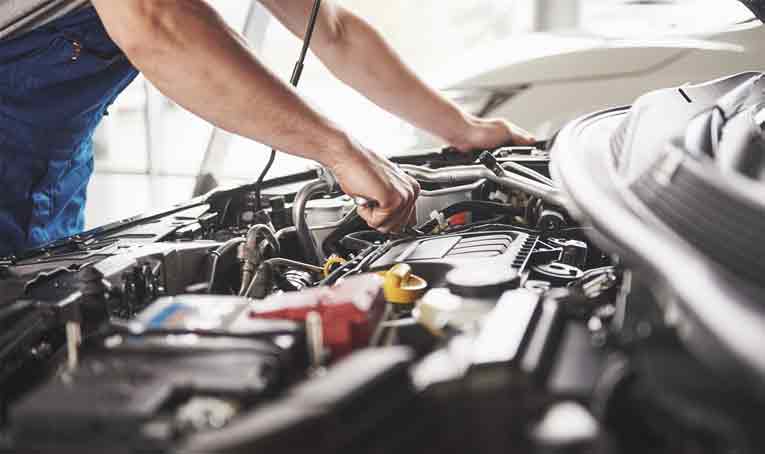
Dealing with major repairs after a car accident can be stressful, but understanding the process and your rights can help make it a smoother experience. Take the time to do your research, choose a reputable repair shop, and stay informed throughout the repair process.
Getting a Rental Car
If you have been involved in an accident and your car is in need of repair, you may have to get a rental car to use in the meantime. Here are some things to consider:
- Notify your insurance company: After the accident, contact your insurance company to inform them of the situation. They will guide you through the process of getting a rental car.
- Check your coverage: Review your insurance policy to see if it includes rental car coverage. If it does, your insurance company should provide you with a rental car at no extra cost.
- Get a rental car through the insurance company: If your insurance policy includes rental car coverage, your insurance company can help you arrange for a rental car. They may have a preferred rental car provider, or they may reimburse you for the cost of a rental car from a different provider.
- Duration of rental: The length of time you can have a rental car will depend on your insurance policy and the estimated time it will take to repair your car. Your insurance company will provide you with the details.
- Keep all receipts: Make sure to keep all receipts related to the rental car, including the rental agreement and any additional expenses such as fuel, tolls, or parking fees. These receipts will be necessary for reimbursement.
It’s important to note that rental car coverage may have limits and restrictions, so it’s best to check with your insurance company for specific details. Additionally, if the accident was not your fault, the at-fault party’s insurance may be responsible for providing you with a rental car.
Importance of Prompt Repairs
After a car accident, it is important to understand how long you have to repair your car. Prompt repairs can play a crucial role in keeping your vehicle safe and maintaining its value. Here are a few reasons why timely repairs are important:
- Safety: A car that has been involved in an accident may have hidden damage that can affect its safety. Prompt repairs will help identify and fix any issues, ensuring that your car is safe to drive.
- Preventing further damage: If your car has suffered damage in an accident, leaving it unrepaired can lead to additional damage. Small issues can escalate and cause more extensive damage, resulting in higher repair costs.
- Maintaining value: Timely repairs are essential in preserving the value of your car. Potential buyers or insurance companies may view a damaged or unrepaired vehicle as less valuable, leading to lower resale or insurance settlement values.
- Insurance requirements: In many cases, insurance policies have specific guidelines regarding the timing of repairs. Failure to comply with these requirements may result in a denial of coverage or complications in the claims process.
Considering these factors, it is advised to repair your car as soon as possible after an accident. Consult a trusted mechanic or body shop to assess the damage and provide an estimate of the repair costs. Remember to document the damages before the repairs and keep copies of any invoices or receipts for insurance purposes.
Legal Timeframes for Repairs
After you have been involved in a car accident, it is important to understand how long you have to repair your car. The specific timeframe will depend on the circumstances of the accident and any applicable laws in your jurisdiction.
In general, there is no set time limit for repairing your car after an accident. However, it is recommended that you take prompt action to have your car repaired as soon as possible to prevent further damage and ensure your safety on the road.
If you are filing an insurance claim for the repairs, your insurance company may have specific guidelines for the timeframe in which repairs should be completed. It is important to review your insurance policy and communicate with your insurance provider to understand the requirements and any applicable deadlines.
In some cases, there may be legal timeframes in place for repairs. For example, if the accident involved another party who was at fault, you may have a limited amount of time to file a claim for damages. This timeframe, known as the statute of limitations, varies by jurisdiction and can range from a few months to several years.
If you are unsure about the legal timeframes for repairs after a car accident, it is recommended to consult with a legal professional who specializes in personal injury or car accident cases. They can provide guidance based on the specific laws in your jurisdiction and help ensure that you meet any necessary deadlines.
It is important to note that while there may be legal timeframes for repairs, it is always best to address the issues as soon as possible for your own safety and peace of mind.
Consequences of Delayed Repairs
After an accident, it is important to repair your car as soon as possible to avoid potential consequences. Delaying the repairs can lead to a number of negative outcomes:
- Inadequate safety: If your car has suffered damage in an accident, delaying repairs can result in compromised safety features. This can put you and your passengers at risk in case of another accident.
- Further damage: Ignoring the necessary repairs can cause the existing damage to worsen over time. Small issues can turn into larger problems, leading to more extensive repairs and higher costs.
- Decreased value: A car with visible damage or unrepaired issues will have a lower resale value. If you plan to sell or trade in your car in the future, delaying repairs can negatively impact its market worth.
- Voided warranties: Some car warranties require that repairs be made within a certain timeframe after an accident. Failing to adhere to these guidelines can result in the warranty being voided, leaving you responsible for future repairs.
- Insurance complications: Delayed repairs can cause complications with your insurance company. They may question the validity of your claim or offer a lower settlement amount if they believe you did not take the necessary steps to mitigate further damage.
- Legal consequences: In some cases, delaying repairs can have legal implications. If your car is not adequately repaired and it is involved in another accident, you may be held liable for any additional damages or injuries caused by the pre-existing damage.
In conclusion, it is important to have your car repaired promptly after an accident to avoid these potential consequences. Taking immediate action can help ensure your safety, protect the value of your car, and prevent further complications down the line.
Expert Advice on Repair Timing
After an accident, many people wonder how long they have to repair their car. The exact answer to this question can vary depending on a variety of factors, including the severity of the damage and your insurance policy. However, there are a few general guidelines that can help you determine how long you have to repair your car.
Insurance Coverage: One of the first things you should do after an accident is contact your insurance company. They will be able to provide you with specific information about how long you have to repair your car based on your insurance policy. Some policies may have specific time limits or restrictions, so it’s important to understand what your coverage allows.
- Immediate Repairs: In some cases, immediate repairs may be necessary for safety reasons. If your car is undrivable or poses a safety risk, it’s important to get it repaired as soon as possible. Your insurance company may provide guidance on finding a reputable repair shop that can handle the necessary repairs quickly.
- Timelines: If your car is still drivable and the damage is not severe, you likely have more flexibility in terms of when you need to repair it. However, it’s still important to address the repairs in a timely manner. Leaving damage unrepaired can lead to further complications, such as rust or mechanical issues.
- Shop Availability: The timing of your repairs may also be influenced by the availability of repair shops in your area. If there is a high demand for repairs or if there are limited options, it may take longer to schedule repairs. It’s a good idea to contact repair shops as soon as possible to get an idea of their availability and schedule accordingly.
Documentation and Communication: Throughout the repair process, it’s important to keep documentation of any conversations with your insurance company and repair shop. This can help in case there are any disputes or delays. It’s also a good idea to stay in communication with the repair shop to stay updated on the progress of your repairs.
In conclusion, while there is no one-size-fits-all answer to how long you have to repair your car after an accident, it’s important to act promptly. Contact your insurance company as soon as possible, assess the severity of the damage, and communicate with repair shops to ensure your car gets repaired in a timely manner. Remember, safety should always be your top priority, so address any immediate repairs necessary to keep yourself and others on the road safe.
Frequently Asked Questions
-
How long do I have to repair my car after an accident?
There is no set time limit for repairing your car after an accident. It ultimately depends on the extent of the damage and your insurance policy. However, it is generally recommended to have your car repaired as soon as possible to prevent further damage and ensure your safety on the road.
-
How long can I wait to repair my car after an accident?
While there is no strict deadline for repairing your car after an accident, it is important to keep in mind that delays can affect your insurance claim and possibly lead to additional issues. It is best to contact your insurance company as soon as possible to report the accident and discuss the repair process.
-
How long does a car repair after an accident take?
The duration of car repair after an accident can vary depending on several factors, such as the extent of the damage, availability of parts, and the workload of the repair shop. Minor repairs could be completed within a few days, while more extensive repairs may take several weeks. It is recommended to consult with your repair shop for an estimated time frame.
-
How long do I have to wait to use my car after repairing it?
Once your car has been repaired after an accident, you can typically use it as soon as it is deemed roadworthy by the repair shop. It is important to follow any guidelines provided by the repair shop and your insurance company to ensure that your car is safe to drive.
-
How long do I have to report the accident to my insurance company?
It is crucial to report the accident to your insurance company as soon as possible. Most insurance policies have a designated time frame for reporting accidents, which is usually within 24 to 72 hours. Failure to report the accident within the specified time frame may result in complications with your insurance claim.
FAQ:
What is the time limit for repairing a car after an accident?
The time limit for repairing a car after an accident can vary depending on several factors. It is recommended to start the repairs as soon as possible to avoid further damage and potential safety risks.
Are there any legal requirements for repairing a car after an accident?
There are no specific legal requirements for repairing a car after an accident, but it is important to follow any instructions or recommendations from your insurance company. They may have certain time limits or procedures that need to be followed.
Can I drive my car if it is damaged after an accident?
If your car is damaged but still drivable, you can continue to use it until you are able to have it repaired. However, it is recommended to get it repaired as soon as possible to prevent further damage and ensure your safety on the road.
What happens if I don’t repair my car after an accident?
If you don’t repair your car after an accident, it can lead to further damage and potential safety risks. Additionally, if you are making an insurance claim, the insurance company may require you to repair the car before they provide any coverage or compensation.
Is there a maximum time limit for repairing a car after an accident?
There is no specific maximum time limit for repairing a car after an accident. However, it is generally recommended to start the repairs as soon as possible to avoid further damage and potential safety risks. Additionally, your insurance company may have certain time limits or procedures that need to be followed.
How long do I have to repair my car after an accident?
The timeline for repairing your car after an accident can vary depending on several factors. It is generally recommended to begin repairing your car as soon as possible to avoid any further damage or complications. Insurance companies may have specific time frames in which repairs must be completed in order to file a claim, so it is important to check with your insurance provider for their policy.
What happens if I don’t repair my car after an accident?
If you don’t repair your car after an accident, it can lead to further damage and potential safety hazards. Additionally, not repairing your car may affect your ability to file an insurance claim or receive compensation for the damages. It is important to assess the damage and address any necessary repairs in a timely manner to ensure the safety and value of your vehicle.
